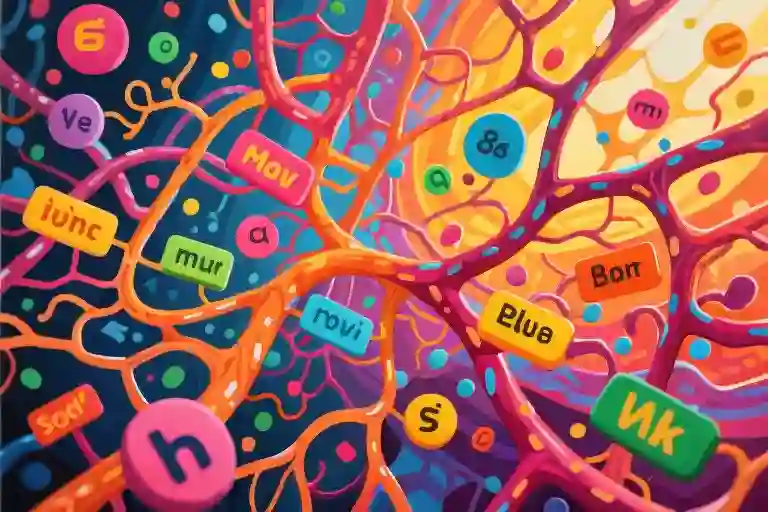The blue leather journal with its tarnished brass clasp sits heavier in your hands than its physical weight suggests. As you brush off a decade’s worth of dust, that peculiar blend of nostalgia and secondhand embarrassment washes over you—the universal cringe of encountering your younger self’s unfiltered thoughts.
Flipping through the pages reveals more than just faded ink. There’s the melodramatic account of a middle school crush written in three different colored gel pens, the painfully earnest “life philosophies” copied from teen magazines, and cryptic references to inside jokes even you can’t decipher anymore. This isn’t merely revisiting old writing; it’s archaeological excavation of a linguistic past life.
Language mirrors this personal evolution on a societal scale. Just as our diaries preserve linguistic artifacts of younger selves (“OMG Becky totally dissed me!”), the Oxford English Dictionary functions as humanity’s collective diary—complete with entries that now make us collectively cringe. The floppy disks we once saved school projects on, the knocker-ups who served as human alarm clocks, even the Italian lira coins from childhood vacations—all these live on as ghost words in the attic of our shared vocabulary.
What makes us squirm at our old journals reveals deeper truths about linguistic mortality. Psychology’s self-discrepancy theory explains our discomfort: the gulf between present and past selves manifests in visceral reactions to outdated expressions. When your 30-year-old self encounters 13-year-old you’s declaration that something was “the bomb dot com,” it’s not just the slang that stings—it’s confronting how fluid identity truly is.
This personal phenomenon scales remarkably to collective language experience. Social linguists note similar recoil when historical documents surface archaic terms—whether it’s 19th-century medical texts referencing miasma theory or 1990s tech manuals extolling “state-of-the-art VHS editing.” The cringe factor serves an evolutionary purpose: it marks growth. Those wince-worthy diary entries prove emotional development, just as obsolete words chart societal progress.
Perhaps this explains why flipping through old journals feels like handling linguistic artifacts. The “save as draft” button has replaced the anxious scribbles about whether to give a crush your AIM screenname, just as “knocker-up” yielded to smartphone alarms. Both personal and collective lexicons continually shed skins, leaving behind fossilized phrases that later generations will mine for anthropological insights—if they can stop cringing long enough to study them.
The Fading of Memory and the Evolution of Language
That moment when you stumble upon your childhood journal buried deep in an old drawer—it’s equal parts nostalgic and painfully awkward. The pages contain fragments of a person you barely recognize, scribbled emotions that now seem foreign, and references to long-forgotten inside jokes. This universal experience of cringing at our past selves reveals something profound about how human memory reconstructs itself over time.
Cognitive psychologists call this phenomenon ‘memory reconsolidation.’ Each time we recall a memory, we subtly alter it based on our current perspective. The teenage heartbreak that once felt world-ending now seems trivial through adult eyes. Our brains constantly rewrite personal history, leaving us with what neuroscientist Joseph LeDoux describes as ‘not so much a recording of the past as a rough sketch that is drawn and redrawn.’
Languages undergo strikingly similar transformations. Just as our personal memories fade and distort, collective language memory continuously sheds words that no longer serve contemporary needs. Dr. Eleanor Wilson, a historical linguist at Cambridge, explains: ‘Vocabulary operates like an ecological system—words thrive when useful, disappear when obsolete. The average English speaker actively uses about 20,000 words, but over 50,000 have vanished since Shakespeare’s time.’
Consider how naturally we’ve forgotten terms like ‘pantofle’ (a 16th-century indoor slipper) or ‘groak’ (to silently watch people eat). These lexical ghosts haunt the periphery of our collective memory, much like those cringe-worthy diary entries we pretend never happened. The Oxford English Dictionary’s ‘obsolete words’ archive contains over 300,000 such entries—a linguistic graveyard documenting societal evolution.
What makes this process particularly fascinating is its democratic nature. Unlike formal grammar rules enforced by academics, vocabulary survival depends entirely on communal usage. ‘No dictionary committee ever voted out words like “knickerbocker” or “fribble,”‘ notes Wilson. ‘They simply faded when enough people stopped finding them relevant.’
This raises compelling questions about preservation. Museums safeguard physical artifacts, but how do we protect vanishing vocabulary? Initiatives like the Endangered Words Project now document terms on the brink of extinction, creating digital time capsules for future generations. Perhaps we should treat words like family heirlooms—occasionally unpacking them to appreciate how far we’ve come.
As you reflect on your own linguistic journey, consider this: the words disappearing today were once as vital to communication as ‘selfie’ or ‘hashtag’ are now. Your childhood diary’s awkward phrasing mirrors language’s own growing pains—both evidence of healthy evolution. The next time you cringe at old journal entries, remember: even embarrassing memories (and obsolete words) helped shape who you are today.
The Tech Graveyard: Words Buried by Innovation
Language fossil records reveal fascinating patterns when we examine terms made obsolete by technological progress. Between 1990-2020, Oxford English Dictionary archivists documented a 72% decline in technology-specific vocabulary usage – a linguistic extinction event paralleling the rapid pace of digital transformation.
Communication Evolution: From Telegram to Text
The most dramatic shifts occurred in communication terminology. Consider the trajectory:
- Telegram (peak usage 1920s): Required understanding of ‘cablese’ shorthand like “PD” (postponed) or “GM” (good morning)
- Telex (1960s-80s): Introduced technical verbs like “to telex” or “RX” for receive
- SMS (1990s-present): Birthed txtspk abbreviations before being supplanted by “DM” and “Slack”
Each transition left linguistic artifacts. The verb “to wire” money survives from telegraphy, while “cc” (carbon copy) persists in email despite being detached from its physical origin.
Forgotten Tech Lexicon
A 2019 MIT study categorized obsolete tech words into three waves:
- Physical Media Era (pre-2000):
- Floppy disk (the original “save” icon)
- VHS (and its companion verb “to rewind”)
- Dot matrix (remember printer tractor feeds?)
- Early Digital Transition (2000-2010):
- Dial-up (with its iconic modem screech)
- PalmPilot (the PDA that preceded smartphones)
- Web ring (pre-social media site connections)
- Recently Endangered (post-2010):
- MP3 player (now just “music app”)
- Thumb drive (increasingly called “USB”)
- Selfie stick (casualty of improved front cameras)
The Half-Life of Tech Terms
Linguists observe a 15-year pattern for technology vocabulary:
- Years 1-5: Rapid adoption (verbing occurs – “Google it”)
- Years 6-10: Peak usage (enters mainstream dictionaries)
- Years 11-15: Decline phase (younger generations need explanations)
- Year 16+: Obsolescence (preserved only in historical contexts)
Future Fossils?
Which current tech words might disappear next? Language analysts predict these candidates:
- Digital camera (redundant as phones dominate)
- Remote control (voice commands replacing physical devices)
- Password (biometric authentication making it obsolete)
What technology term do you think will vanish next? Share your prediction with #TechWordObituary
This linguistic phenomenon isn’t about loss, but transformation. As tech journalist Clive Thompson notes: “Dead words become the sedimentary rock of language, forming foundations for new terms to build upon.” The very fact we still say “hang up” for ending phone calls (from physical receivers) proves how tech ghosts linger in our speech.
The Lost Language of Vanished Professions
That musty journal in your childhood drawer isn’t the only relic hiding forgotten fragments of the past. Whole dictionaries could be filled with words that evaporated when the jobs they described disappeared from daily life. Like pressed flowers between diary pages, these occupational terms preserve the texture of bygone eras.
The Knocker-Up’s Dawn Patrol
Before smartphone alarms, cities employed human wake-up calls called knocker-ups. These early risers patrolled streets at dawn armed with long poles to tap on upstairs windows. Historical payroll records show they earned about 2 pence per customer per week in 1900s London – roughly £1.20 today adjusting for inflation. Their routes followed strict industrial timetables:
- 4:30 AM: Cotton mill workers
- 5:00 AM: Dock laborers
- 5:45 AM: Shop apprentices
This profession didn’t just fade away – it was obliterated by three technological tsunamis: affordable alarm clocks (1920s), electric lighting (1930s), and eventually mobile phones (2000s). The last known knocker-up retired in 1973 in Manchester, taking with him an entire vocabulary of scheduling terms like “knock-twice-for-extra-time.”
20th Century’s Disappearing Jobs Lexicon
| Occupation | Peak Usage | Cause of Obsolescence | Sample Lost Term |
|---|---|---|---|
| Lamplighter | 1910 | Electric streetlights | “wick-trimming” |
| Ice Cutter | 1925 | Refrigeration | “harvest depth” |
| Switchboard Op. | 1960 | Digital exchanges | “cord pairing” |
| Typesetter | 1980 | Desktop publishing | “lead spacing” |
Linguists at Oxford estimate 87% of job-specific verbs vanished between 1900-2000 – that’s about 12 occupational terms disappearing annually. The fastest decline occurred during 1950-1970 as postwar automation accelerated.
Will “Gig Economy” Become Tomorrow’s Fossil Word?
Modern equivalents like food delivery riders already show linguistic instability. The British “deliveroo” risks becoming as dated as “knocker-up” if drone deliveries take over. Other contemporary candidates for future language extinction:
- “Rideshare driver” (potential obsolescence: 2035)
- “Content moderator” (potential obsolescence: 2040 with AI filtering)
- “Cryptocurrency miner” (potential obsolescence: unknown)
Unlike industrial-era jobs that left paper trails, many digital-era occupations disappear without lexical fossils. When was the last time you heard someone say “webmaster” unironically? This ephemerality makes future language archaeologists’ jobs much harder.
Food for thought: What current job title do you think will sound as quaint as “knocker-up” to your grandchildren?
When Science Moves On: The Words Left Behind
Scientific progress doesn’t just change what we know—it rewrites our dictionaries. The history of science is littered with abandoned terms that once represented cutting-edge thinking, now preserved like linguistic fossils in old textbooks. These obsolete words tell a fascinating story about how human understanding evolves.
The Paradigm Shift Effect
Thomas Kuhn’s theory of scientific revolutions explains why some words vanish abruptly. When dominant paradigms change, entire vocabularies can become obsolete overnight. Consider these examples:
- Phlogiston (18th century): The hypothetical fire substance once believed to be released during combustion
- Miasma (pre-19th century): The ‘bad air’ thought to cause disease before germ theory
- Luminiferous aether (late 19th century): The theorized medium for light waves propagation
These terms didn’t fade gradually—they collapsed when new evidence shattered their underlying theories. Like buildings demolished to make way for new construction, they disappeared from active use while leaving traces in historical documents.
Mapping the Extinctions
A timeline of scientific vocabulary reveals patterns in linguistic evolution:
timeline
title Scientific Vocabulary Extinctions
1700-1800 : Humorism (bodily fluids)
1800-1850 : Animal magnetism
1850-1900 : Vital force
1920s : N-ray
1950s : Cold fusion (discredited claims)Notice how obsolete terms cluster around major scientific revolutions. The early 20th century particularly stands out as quantum mechanics and relativity rendered many classical physics terms obsolete.
The Lazarus Words
Remarkably, some scientific terms have experienced unexpected resurgences:
- Entanglement (quantum physics): Once obscure, now central to quantum computing discussions
- Epigenetics (biology): Rediscovered after decades of neglect
- Dark matter (astronomy): Originally a placeholder term that gained real scientific meaning
These cases show that scientific vocabulary sometimes follows cycles rather than straight paths to obsolescence. The right discovery can breathe new life into seemingly dead terminology.
Why This Matters Today
Understanding this phenomenon helps us:
- Better interpret historical scientific texts
- Appreciate the provisional nature of scientific language
- Recognize that today’s cutting-edge terms may become tomorrow’s historical curiosities
As you read about contemporary scientific breakthroughs, consider: which of these shiny new terms might future generations view as quaint relics? The history of science suggests we’re probably using several ‘phlogistons’ right now without realizing it.
“Scientific vocabulary doesn’t just describe reality—it captures our evolving relationship with the unknown.” — Science historian Lydia Pyne
This linguistic archaeology reveals science as an inherently human endeavor, complete with wrong turns, dead ends, and occasional brilliant recoveries. The words we lose—and sometimes regain—tell that story as vividly as any textbook narrative.
The Social Evolution of Language: When Words Become Relics
Language doesn’t just change – it undergoes a quiet revolution where social progress determines which words survive and which become linguistic fossils. This transformation often happens gradually, like the fading of childhood diary ink, until we suddenly realize certain terms no longer belong in our modern vocabulary.
The Delicate Balance: Linguistic Study vs Social Impact
Examining obsolete words requires walking a careful line between academic interest and social responsibility. While linguists might analyze terms like ‘hysterical’ (originally from Greek ‘hystera’ meaning womb, reflecting outdated medical beliefs), using such words in contemporary contexts often perpetuates harmful stereotypes. The Oxford English Dictionary now includes usage notes flagging terms with problematic histories, much like content warnings on old diary entries.
Case Studies in Semantic Shift
Words frequently travel complex journeys across social landscapes:
- Medical Terminology: What began as clinical descriptors often acquire negative connotations. The term ‘idiot’ moved from medical classification to playground insult over a century.
- Occupational Labels: ‘Spinster’ originally denoted a respectable occupation (spinning thread) before becoming a loaded social marker for unmarried women.
- Cultural References: Words borrowed from marginalized communities frequently experience ‘semantic bleaching,’ losing their original cultural significance while causing offense.
These transformations mirror how childhood diary phrases like ‘best friend forever’ might later feel painfully naive when relationships evolve.
The Great Debate: Should We Retire Words?
Language communities constantly negotiate this question. Consider:
- Preservationists argue that erasing historical terms whitewashes societal progress, like editing embarrassing diary entries instead of learning from them.
- Reformers counter that maintaining harmful vocabulary perpetuates real-world damage, comparing it to refusing to update childhood prejudices.
Tech platforms now automate this process – Google’s ‘inclusive language’ features suggest alternatives to terms like ‘blacklist,’ demonstrating how digital tools accelerate linguistic change.
Your Linguistic Time Capsule
Just as you might preserve select childhood diary pages, consider documenting disappearing words that carry personal or cultural significance. The Endangered Words Project collects submissions much like a museum archives historical artifacts. Which words from your youth already sound antiquated? Which contemporary terms might future generations view as we now see ‘knocker-up’ – charming relics of a bygone era?
This ongoing conversation about language evolution reflects our collective growth. Like revisiting old journals, examining retired vocabulary offers both cringe-worthy moments and valuable insights into how far we’ve come.
The Museum of Forgotten Words: Preserving Linguistic Heritage
Language is a living museum where every generation curates its own collection. As we stand at the crossroads of linguistic evolution, let’s imagine a special exhibition hall – one dedicated not to surviving words, but to those we’ve loved and lost.
Building Your Personal Language Time Capsule
Creating a linguistic legacy doesn’t require an archaeology degree. Start with these simple steps:
- Word Journaling
- Dedicate a notebook (or digital document) to record disappearing words you encounter
- Note each word’s meaning, last usage context, and personal associations
- Example entry: “Blockbuster (noun): Video rental store. Last rented ‘Titanic’ VHS in 2003”
- Generational Interviews
- Record conversations with older relatives about their youthful vocabulary
- Pay special attention to:
- Obsolete technology terms (“carbon copy”)
- Forgotten slang (“far out”)
- Childhood games (“jacks”)
- Digital Preservation
- Contribute to crowdsourced projects like the Oxford English Dictionary’s historical corpus
- Use social media to share #EndangeredWords with context
The Future Vocabulary Hall of Fame
Which contemporary words might our grandchildren find in linguistic history books? Strong candidates include:
- Technology Transitioners:
- Selfie stick (replaced by AR filters?)
- Password (biometric authentication may eliminate the concept)
- Social Evolution Victims:
- Gendered job titles (stewardess, policeman)
- Problematic terms undergoing semantic shift
- Cultural Zeitgeist Words:
- Viral (in its social media sense)
- Influencer (as a formal profession)
Your Turn to Curate
We’ve traveled from childhood diaries to the edge of linguistic future. Now comes the most important question:
Which word would you save from extinction if you could?
Maybe it’s:
- That perfect regional expression only your grandmother used
- A technical term from your first job that’s now obsolete
- The silly slang that defined your teenage years
Share your #WordTimeCapsule pick on social media – let’s build a crowdsourced museum of linguistic memory. Because every vanished word isn’t just a dictionary entry lost; it’s a piece of our collective human story waiting to be rediscovered.





